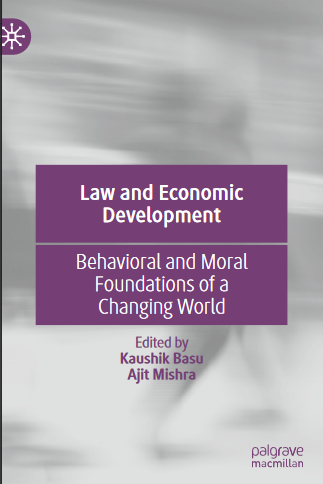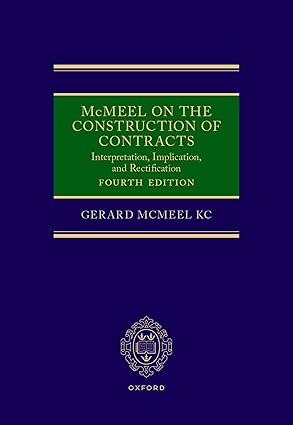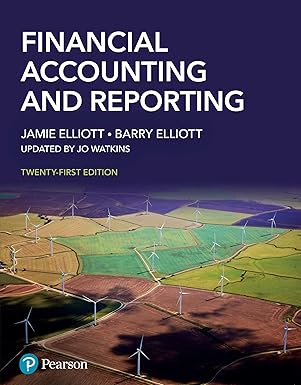economics are not often put together as a topic.” Indeed, this impor- tant concept is rarely made explicit in traditional neoclassical economic models. Power, as a concept, is an underlying element in economic theory, embedded in certain aspects of market interactions, as well as in the making of the rules that regulate them. The non-explicit use of the concept might have deleterious consequences for both analytical rigor and policy conclusions. When economists fail to take power into account, they may be at risk of not fully disentangling the different aspects of a problem that they are modeling. Moreover, this can lead (and has led) to ineffective policy advice that is not fully connected to the real world. John Kenneth Galbraith remarked on this challenge almost fifty years ago. In his 1973 presidential address to the American Economic Association on Power and the Useful Economist, he claimed that “in eliding power—in making economics a nonpolitical subject—neoclassical theory...destroys its relation with the real world” (Galbraith, 1973, p.2). By putting aside an essential aspect that determines the outcome policymakers are trying to influence, for example, any recommendation of action could indeed fail to change such outcome. However, as the field of economics has evolved over the past half century, it has also made great strides in engaging with the concept of power more explicitly—beyond the traditional idea of “market power” when referring to market imperfections. In 1991, Pranab Bardhan wrote the article On the Concept of Power in Economics. In it, he surveys the conceptual and empirical advances made at the time—discussing how power has been considered in the context of bargaining games, economic organizations, capitalist authority relations—and discusses both struc- tural and behavioral approaches (Bardhan, 1991). Thirty years later, this chapter seeks to update that review by taking stock of more recent devel- opments in the field. Bringing the microeconomics of power relations among actors into the analysis of economics and economic policymaking is arguably a way to go back to the main concerns of classical thinking in both economics and political philosophy. Here, we highlight advances in both macroeconomics and microeconomics and draw in particular on insights from the subdisciplines of behavioral economics and political economy, among others
چکیده فارسی
اقتصاد اغلب به عنوان یک موضوع کنار هم قرار نمی گیرد. در واقع، این مفهوم مهم به ندرت در مدلهای اقتصادی سنتی نئوکلاسیک آشکار میشود. قدرت به عنوان یک مفهوم، عنصری زیربنایی در تئوری اقتصادی است که در جنبه های خاصی از تعاملات بازار و همچنین در ایجاد قوانین تنظیم کننده آنها تعبیه شده است. استفاده غیر صریح از این مفهوم ممکن است پیامدهای زیانباری برای دقت تحلیلی و نتیجه گیری سیاست داشته باشد. زمانی که اقتصاددانان قدرت را در نظر نگیرند، ممکن است در خطر عدم تفکیک کامل جنبههای مختلف مشکلی که در حال مدلسازی هستند، باشند. علاوه بر این، این میتواند منجر به توصیههای سیاستی ناکارآمد شود (و منجر به آن شده است) که به طور کامل با دنیای واقعی مرتبط نیست. جان کنت گالبریت تقریباً پنجاه سال پیش به این چالش اشاره کرد. او در سخنرانی ریاستجمهوری خود در سال 1973 به انجمن اقتصادی آمریکا در مورد قدرت و اقتصاددان مفید، ادعا کرد که «در حذف قدرت - در تبدیل اقتصاد به موضوعی غیرسیاسی - نظریه نئوکلاسیک... رابطه آن با دنیای واقعی را از بین میبرد» (گالبریث، 1973، ص.2). برای مثال، با کنار گذاشتن یک جنبه اساسی که تعیین کننده نتیجه است، سیاستگذاران سعی در تأثیرگذاری دارند، هر توصیه اقدامی در واقع می تواند چنین نتیجه ای را تغییر ندهد. با این حال، همانطور که حوزه اقتصاد در نیم قرن گذشته تکامل یافته است، همچنین گام های بزرگی در درگیر شدن با مفهوم قدرت به طور واضح تر برداشته است - فراتر از ایده سنتی "قدرت بازار" در هنگام اشاره به نقص های بازار. در سال 1991، پراناب بردان مقاله ای درباره مفهوم قدرت در اقتصاد نوشت. در آن، او پیشرفتهای مفهومی و تجربی انجام شده در آن زمان را بررسی میکند - بحث در مورد اینکه چگونه قدرت در چارچوب بازیهای چانهزنی، سازمانهای اقتصادی، روابط اقتدار سرمایهداری در نظر گرفته شده است - و هم رویکردهای ساختاری و هم رویکردهای رفتاری را مورد بحث قرار میدهد (Bardhan, 1991). سی سال بعد، این فصل به دنبال به روز رسانی آن بررسی با بررسی پیشرفت های اخیر در این زمینه است. آوردن اقتصاد خرد روابط قدرت میان بازیگران به تحلیل اقتصاد و سیاست گذاری اقتصادی، مسلماً راهی برای بازگشت به دغدغه های اصلی تفکر کلاسیک در اقتصاد و فلسفه سیاسی است. در اینجا، پیشرفتها در اقتصاد کلان و اقتصاد خرد را برجسته میکنیم و بهویژه از بینشهایی از زیرشاخههای اقتصاد رفتاری و اقتصاد سیاسی استفاده میکنیم
ادامه ...
بستن ...
Editors
Kaushik Basu
Department of Economics and SC
Johnson College of Business
Cornell University
Ithaca, NY, USA
Ajit Mishra
Department of Economics
University of Bath
Bath, UK
ISBN 978-3-031-24937-2 ISBN 978-3-031-24938-9 (eBook)
https://doi.org/10.1007/978-3-031-24938-9
© The Editor(s) (if applicable) and The Author(s), under exclusive license to Springer
Nature Switzerland AG 2023
This work is subject to copyright. All rights are solely and exclusively licensed by the
Publisher, whether the whole or part of the material is concerned, specifically the rights
of translation, reprinting, reuse of illustrations, recitation, broadcasting, reproduction on
microfilms or in any other physical way, and transmission or information storage and
retrieval, electronic adaptation, computer software, or by similar or dissimilar methodology
now known or hereafter developed.
The use of general descriptive names, registered names, trademarks, service marks, etc.
in this publication does not imply, even in the absence of a specific statement, that such
names are exempt from the relevant protective laws and regulations and therefore free for
general use.
The publisher, the authors, and the editors are safe to assume that the advice and informa-
tion in this book are believed to be true and accurate at the date of publication. Neither
the publisher nor the authors or the editors give a warranty, expressed or implied, with
respect to the material contained herein or for any errors or omissions that may have been
made. The publisher remains neutral with regard to jurisdictional claims in published maps
and institutional affiliations.
This Palgrave Macmillan imprint is published by the registered company Springer Nature
Switzerland AG
The registered company address is: Gewerbestrasse 11, 6330 Cham, Switzerland
ادامه ...
بستن ...










